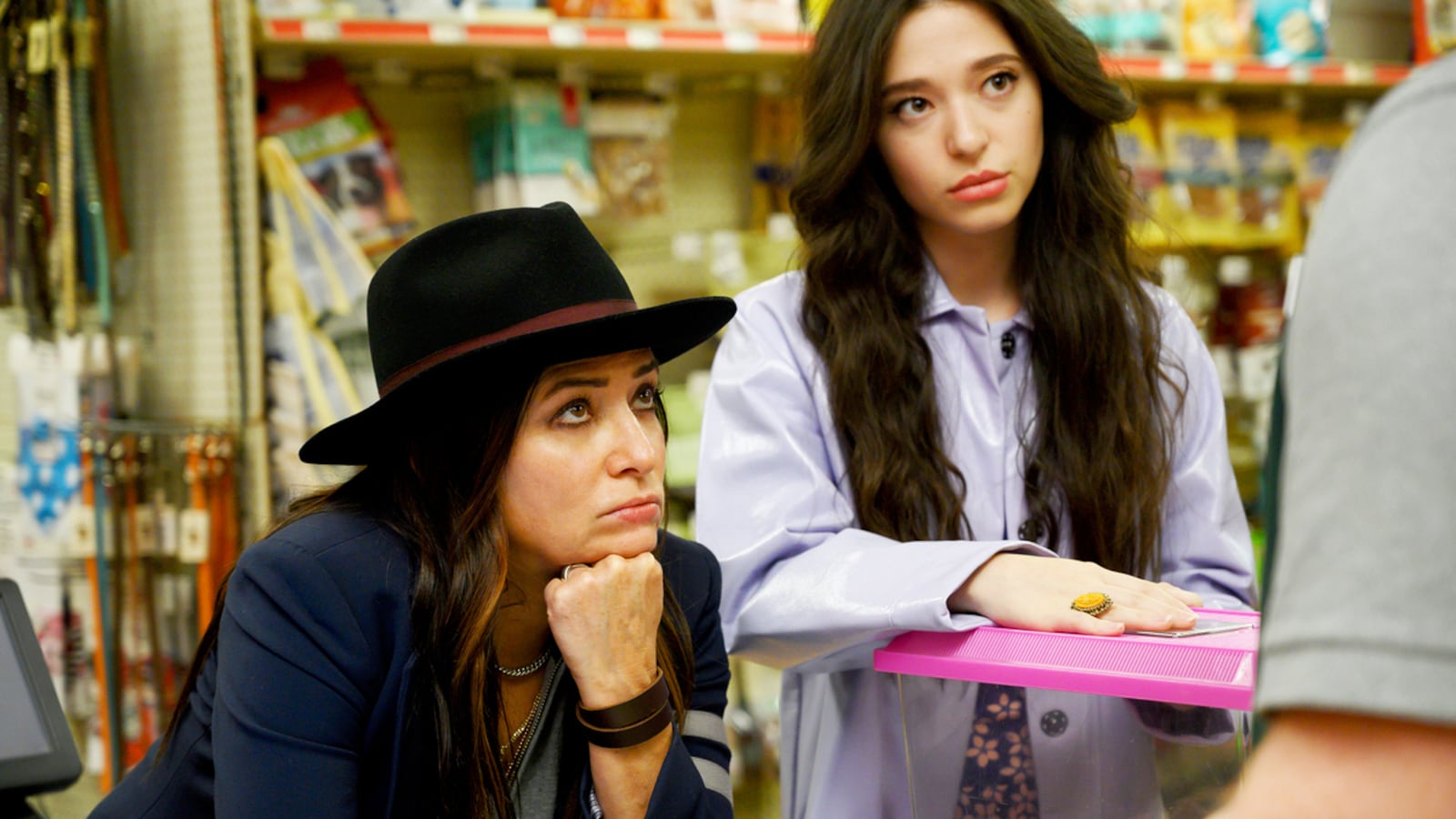This is a preview of our pop culture newsletter The Daily Beast’s Obsessed, written by senior entertainment reporter Kevin Fallon. To receive the full newsletter in your inbox each week, sign up for it here.
Sam Fox likes it when it rains in Los Angeles. It takes not even 10 seconds for you to pivot from assuming she’s a psychopath for thinking this to totally, truly getting it.
It’s raining throughout many of the first few episodes of the new season of Better Things, the FX gem created by, directed by, and starring Pamela Adlon and which launched its fourth season this week. Spend some time with Adlon’s Sam, her three daughters, her mother, and her constellation of L.A. friends-turned-family, and you’re on board with this rain thing. It’s cozy, warm, mysterious, romantic, and somehow inviting.
Even the errant leaks in the house aren’t a nag, but a reminder: There is rain, metaphorical or otherwise, in life, so why be pissed about it? Why not appreciate it for the ways in which it’s changed things up, maybe even made them pleasant in a new way? (That said, I’m going to be in Los Angeles later this month, and if it rains while I’m there I swear to God…)
Better Things is a lovely show. It’s been a lovely show since its start, through a scrutinized transition once it parted ways with co-creator and Adlon’s former creative partner, Louis C.K., and now that, in season four, we’re hip to its pleasure: A lot of profound nothingness.
The hard sell on Better Things has always been that it’s impossible to sell Better Things. There’s the nothingness of it all. Episode descriptions say things like, “Sam picks up the girls from a trip,” or “Sam takes Duke to ballet and Frankie to Pinkberry,” referencing two of Sam’s aforementioned girls. Often those aren’t even the most monumental plot events of the given episodes, because there’s nothing particularly monumental happening in most episodes.
It’s a show that celebrates the mundanity of life. It’s so familiar, even when it’s not—I am not, in fact, a single mother of three navigating parenting and my Hollywood career as an actress—in ways that feel epic, even while showing slices of life that are so small.
I sound ridiculous, I know, like they gave Marianne Williamson a TV Guide column or something. But the show, in its meticulous simplicity, is truly special.
There are some shows that make you just want to open a sleeve of Ritz crackers and enter a trance state of blissful enchantment, whisked off to this warm world so enthralling that you don't care when you look over and see that, whoops, not only is the entire sleeve of Ritz gone but so is that wedge of cheese you took out. The calories don’t count, because they were anything but empty.
(That this is my philosophy and it also happens to be my job to watch television which may or may not have something to do with the otherwise inexplicable phenomenon of none of the dress shirts in my closet buttoning anymore. Who can say.)
No show on TV is a better Ritz show than Better Things. It also happens to be a powerful tonic to settle souls that have been soured by the message sent to the universe/country/Democratic party/stubborn culture of institutional misogyny by Elizabeth Warren being forced out of the primary race.
It passes the two most important tests of any TV show I would endorse: Does Molly Shannon show up, and will I at some point be so overcome with emotion I startle myself with a yelp I didn’t know was coming while very heavily crying—preferably over a gay wedding? (Mark your calendars for April 2, when episode six, “New Orleans,” airs.)

It’s rare for there to be a show where feeling isn’t manufactured, yet is still palpable. It just exists.
It’s in the intimacy of Sam’s relationships. It’s the amount of love in every frame. It’s the way she embraces strangers, these fleeting connections that she doesn’t like lasso into lifelong friendships, but appreciates and assesses for the ways in which they enrich her life—transiently or compoundly—and then moves on. It’s the two minutes of Sam and her daughter calling each other a cunt that is somehow oh-so-wholesome, and extremely gratifying.
The show is a reminder that being a family means the people around you make your life a constant living hell, but you don’t really even notice the irritation. You move on to the next moment, the next day, never once thinking that these people are something to be weathered or dealt with. And maybe it rains.
For more, listen to Pamela Adlon on The Last Laugh podcast.






